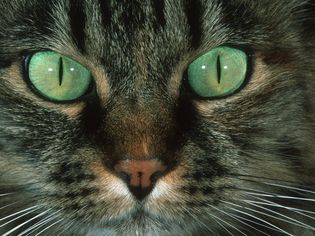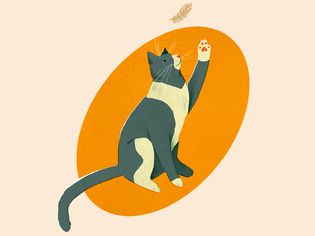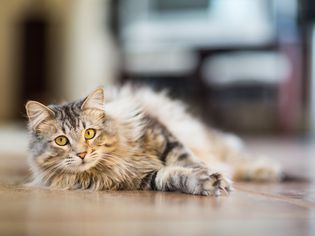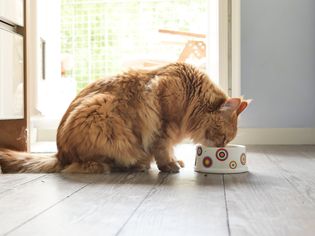Any cat owner is well aware that cats can shed a lot of fur. Vacuuming and sweeping is a routine chore in any cat home. In your own cleaning, you may have chanced upon a shed whisker once or twice. It's perfectly normal for your cat to shed whiskers, just as it's perfectly normal for your cat to shed fur. However, if there's suddenly an uptake in the number of whiskers you're finding or if it looks like your cat is suddenly missing whiskers, that might be cause for concern.
What Are Whiskers, Anyway?
Whiskers or 'vibrissae' are a highly specialized type of fur. For cats, whiskers serve three purposes:
They aid in balance: Everyone knows the old saying that a cat always lands on her feet. That is thanks, in part, to their whiskers! Whiskers aid in proprioception, that is, letting your cat know where her body and her limbs are in space and in relation to one another.
They help your cat judge space: The width of your cat's whiskers are roughly as wide your cat is! Your cat is able to judge just how tight a squeeze something might be by her whiskers.
They provide sensory input from things close to your cat's face: They are very sensitive to touch and can help your cat 'see' in low light or even no light! As your cat grows new whiskers, it's perfectly normal for the old whiskers to drop. This would account for finding a stray whisker while you're cleaning the house. There are reasons your cat may shed whiskers more frequently, though.
Causes of Whisker Loss in Cats
Allergies
Cats can have allergies just like we can have allergies. Unlike us and our hay fever, though, cats manifest their allergic flare-ups with skin ailments. Cats can be allergic to things in their environment such as pollen and parasites or, more rarely, they can have a food allergy. If your cat has a history of allergies and is suffering from a flare-up you may start to notice red, itchy skin. You may also start to notice that your cat's hair is beginning to fall out. If your cat's flare-up happens to be in an area near her whiskers, she may start to drop those as well.
Infections
Bacterial and fungal infections can also compromise the integrity of the skin similar to what happens with an allergy flare-up. If your vet suspects your cat is losing her whiskers because of a skin infection, they will want to prescribe medications to help treat it. Ringworm, which actually isn't a worm at all but a fungal infection, is more commonly seen in kittens but it is not out of the realm of possibility for an adult cat to become infected with ringworm.
Trauma
Cats that roam freely outside or that live with other pets may at some point in their life get into a scrape with another animal or housemate. Depending on the wound locations and whether there are any accompanying infections, you may see whisker loss. Preventing your cat from wandering outside unsupervised can help prevent trauma inflicted by a wild animal. Even if your pets at home aren't the best of friends, there are things you can do to make life less stressful. Ensuring there are plenty of resources (i.e. water bowls, litter boxes, sleeping areas, toys, and scratching surfaces/cat furniture) can help prevent fights that stem from resource guarding. Placing scratch pads and more vertical climbing surfaces/cat shelves in areas of high traffic (such as hallways) can allow your cat to more appropriately get out their stress by scratching on the pad and not their housemate. Cat shelves can also increase the walking area of a small space, making a tight hallway a little less stressful.
Acne
Cats can also suffer from acne. The most common location for an outbreak to occur is on your cat's chin. If your cat's acne is bad enough, it may start to spread closer to your cat's whiskers. This can also contribute to whisker loss. The easiest way to prevent acne in your cat is to use only stainless steel or ceramic food/water bowls (as opposed to plastic) and to clean them frequently.
Whiskers are very important parts of your cat's anatomy that serve a multitude of purposes. Finding a stray whisker while performing chores around your home is perfectly normal (and some would even say it is good luck). There are medical reasons for your cat to lose her whiskers more frequently, though. So, if you suspect your cat is suddenly losing more whiskers than is normal for her, schedule an appointment with your vet to get her feeling better quicker.










Comments on " Why Do Cats Lose Whiskers?" :